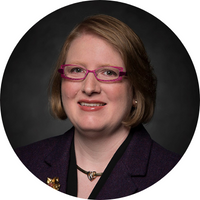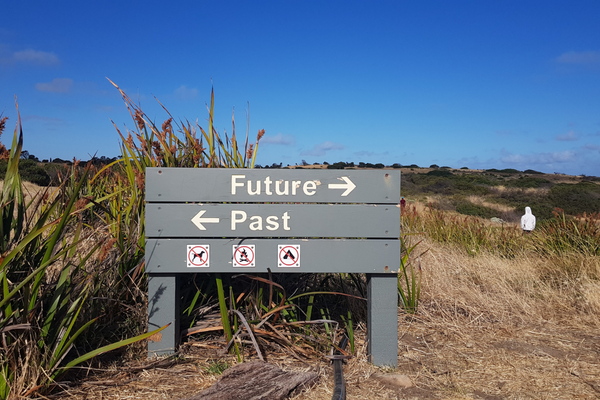
Cargill recently hired you to be its Industrial Regulatory and Scientific Affairs Manager, North America. What are some of your primary responsibilities in that role?
My role is to enable the success of Cargill’s Bio-Industrial business while ensuring compliance for the products in the countries to which they are marketed. This involves ensuring my team and I are partnering with the research and development teams along with our commercial leads on new projects and market expansion. We also focus on managing the regulatory needs of the business so that regulatory is not the process limiting step in launching a new product. The role also involves monitoring and advising the business on emerging trends and new regulations in the industrial chemical space.
Prior to joining Cargill last year, you worked for the Lubrizol Corporation for nearly 13 years. What have you learned about adapting to work for a new company - and a new manager - that others looking to transition to a new company and manager might find helpful?
My transition to my new role has been non-historically-standard to say the least, but may reflect more of what we experience in the future. When I took my new role in January 2020, it was for my first remote work position and we began planning a series of trips to onboard me into my new role.
Then the world changed. I was one of the first employees to start at Cargill during the initial COVID-19 lockdown in the spring of 2020. I have not traveled once to the office of my new company and have had to develop relationships and my new network in a completely virtual format.
One of my first learnings was to be flexible and open. I took each day as an opportunity to learn and better understand my new organization’s structure and culture. This is not easy to do remotely. You have to be intentional as there are no water cooler / coffee maker chat moments in your day. I scheduled regular meetings with my manager, business stakeholders and team members to facilitate building those relationships. I now budget time at the start of these one on one meetings to have real conversations with people about what is happening in our lives. Doing that has helped me build deeper relationships with my team and stakeholders.
I have been lucky to have great managers throughout my career, and currently is no exception. With any manager, honestly expressing what support you need from them, where you are facing challenges, and communicating how you would like for your career to develop is key to a healthy and strong relationship with your manager.
Can you share your journey through your academic education? What were the biggest challenges you faced? With the benefit of hindsight, anything you would have done differently?
I completed my undergraduate studies at Washington University in Saint Louis (WashU) and my PhD from the University of Wisconsin - Madison. I originally selected WashU as I was interested in pursuing a MD-PhD. However, once I took Organic Chemistry my sophomore year I was hooked.
I entered my PhD program thinking I wanted to teach at a primarily undergraduate institution (PUI). However, the more I learned about what being a professor at a PUI involved, I determined that was not the correct path for me, and I decided to enter industry instead.
In industry I spent approximately 2 years as a bench chemist when my manager came to me with a temporary assignment to support the regulatory department, as they needed a chemist to review the product composition for an EU regulation called REACH. In this project I finally found my calling as a chemist. I loved what I was doing, and at the end of the assignment, I was able to take a full time job in the regulatory department and have never looked back.
What I love about this role is the diversity of chemistry that I get to review and evaluate. No two days are the same. Most people in my field don’t have a doctorate in chemistry. However, I am not sure I would have changed my journey much, in hindsight. I became a more resilient person as a PhD student and learned a lot about myself during that time.
How was the transition from academia to industry? In what ways did your university prepare you for this journey? In what areas was there room for improvement?
Honestly, while I was technically prepared when I finished my PhD to enter my industrial career, I was lacking many of the softer skills that are necessary to succeed in an industrial setting. In industry, the “WHAT” you do is as important as “HOW” you do it. Throughout my career, my performance ratings have been based on both. I feel that the PhD process prepares you well for the “WHAT” but not the “HOW”. One of the main areas education programs could improve is in providing some training on the softer communication skills.
What is the one personality trait that has been most instrumental in your career success? What trait do you wish you had in greater supply?
The trait that has been most instrumental in my career success is self-reflection. This has primarily come in the form of accepting and incorporating feedback from both peers and managers. This was not a strong trait when I entered industry; it was one I had to cultivate.
Internalizing feedback and making changes based on the feedback is hard, but I found it was important for success, as it allows you to grow both personally and professionally. The one trait I wish I had in greater supply was patience. However, that more relates to managing my daughter than work.
What non-technical skills have you most relied on to-date for your career advancement?
Building relationships and a strong network. Both of the organizations that I have worked in have been matrixed. In order to accomplish what I needed to support my businesses, I had to leverage connections that I had built across departments and divisions within the organization. Leveraging the skills of your co-workers across the organization to enable success is a key skill.
You served as chair of the Northeastern Ohio Local Section, a member of the Women Chemist Committee, and chair of the Nomenclature, Terminology and Symbols Committee. If five years from now we offered you your choice to reprise one of those roles, which would you choose? And why?
If I could reprise one of my roles, I would probably choose being chair on Nomenclature, Terminology and Symbols Committee. The committee has been on a transformative journey over the last 3 years, as we have enacted a new strategic plan. I will term off the committee at the end of this year and would love to see how that plan has continued to develop and evolve.
What is the profile of someone who is likely to excel, and enjoy the work, associated with serving as a member of the Nomenclature, Terminology and Symbols Committee?
The mission of NTS is: educate, facilitate, and advocate for the use of chemical representations that support universal understanding of chemistry. People who succeed as members of the NTS committee are passionate about making Nomenclature, Terminology and Symbols accessible to all members of the chemistry community. The work of the committee ranges from developing teaching materials that support high school and college chemistry teachers to engage their students in nomenclature, to providing technical expertise on the revision of the Braille Chemistry Code so book translators represented chemical concepts in a consistent way.
How would you characterize the workplace environment for female chemists starting their careers today vs. when you began your career? What advice do you have for early career women chemists?
I will be honest: I hate this question. Every company’s culture and environment are so different, generalizations are hard. I have spent most of my career in industry in working in departments that were more than half women. Regulatory seems to be an area of chemistry where the women outnumber the men, and I have been lucky to work in supportive environments. Additionally, I have been very fortunate to have great male and female mentors during my career. The best advice that I can give to early chemists, whether they are men or women, is to find a mentor who can help you navigate your career, who you can have honest conversations with when things are difficult, and who can coach you through to the other side.
What have you learned about yourself during the pandemic?
I am an introvert. In my Myers-Briggs profile, I am basically off the scale for introverts. At the start of the pandemic, I enjoyed some of the peace that came with spending so much time with my family. However, as the pandemic has continued, I realized that I really miss in-person interactions that occur with friends and co-workers on a daily basis. I miss coffee pot chats with my co-workers and even the best virtual catch-up meetings are just not the same as seeing someone in-person. So, this introvert has learned that she needs in person social interactions and is looking forward to when I can meet all my new co-workers in person.
We understand you like to cook. If the ACS Industry Matters newsletter staff came over to your place for dinner, what would you cook for us?

The pandemic, and my associated reduced commute, has allowed me time to explore many new recipes that I did not have time for in the past. It has also pushed me to learn how to cook some of my favorite restaurant dishes. My favorite new recipe that I have been perfecting is Tacos Al Pastor, which is a Mexican style pork street taco. I would be coupling with my new favorite cookie recipe for Alfajores, which is a Latin American short bread cookie sandwich filled with dulce de leche. These are my daughter’s favorites.

Michelle Rogers started at Cargill, Inc. in April 2020 as a Senior Regulatory Affairs Specialist. In this role she was responsible for providing regulatory support to several of Cargill’s Bio-Industrial product line. In November of 2020 Michelle moved to a new role as Manager of Industrial and Regulatory and Scientific Affairs – North America. In this new role she is responsible for developing the industrial regulatory strategy to ensure compliance while enabling business success. In this role Michelle manages a team of regulatory and hazard communication specialist.
Prior to joining Cargill, Michelle spent 13 years working for The Lubrizol Corporation. Michelle joined Lubrizol as a research scientist where she developed novel detergents for engine oils. She then transitioned to the Product Safety and Compliance Department (PSCD). Michelle’s time in PSCD was focused on the EU and Korean REACH regulations along with the associated systems and process development.
Michelle is very involved with the American Chemical Society (ACS) on a national level, previously serving on the Women Chemists Committee (WCC) and currently chairing the Nomenclature, Terminology and Structure Representation (NTS) committee. She is also involved at the international level with International Union of Pure and Applied Chemistry (IUPAC). Michelle is involved with the Committee on Chemistry and Industry (COCI) and Division VIII – Nomenclature and Structure Representative, where she currently serves as Vice President.
Michelle received her BA in Chemistry from Washington University in Saint Louis and her PhD in Organic Chemistry from University of Wisconsin – Madison. Her PhD work involved the development of new oxidative Palladium catalyzed C-C and C-N bond forming reactions.
Michelle’s hobbies include: Needlepoint, bicycling, traveling, cooking and spending time with her husband and 5 year old daughter.
Copyright 2021 American Chemical Society (All Rights Reserved)
This article has been edited for length and clarity. The opinions expressed in this article are the author's own and do not necessarily reflect the view of their employer or the American Chemical Society.













